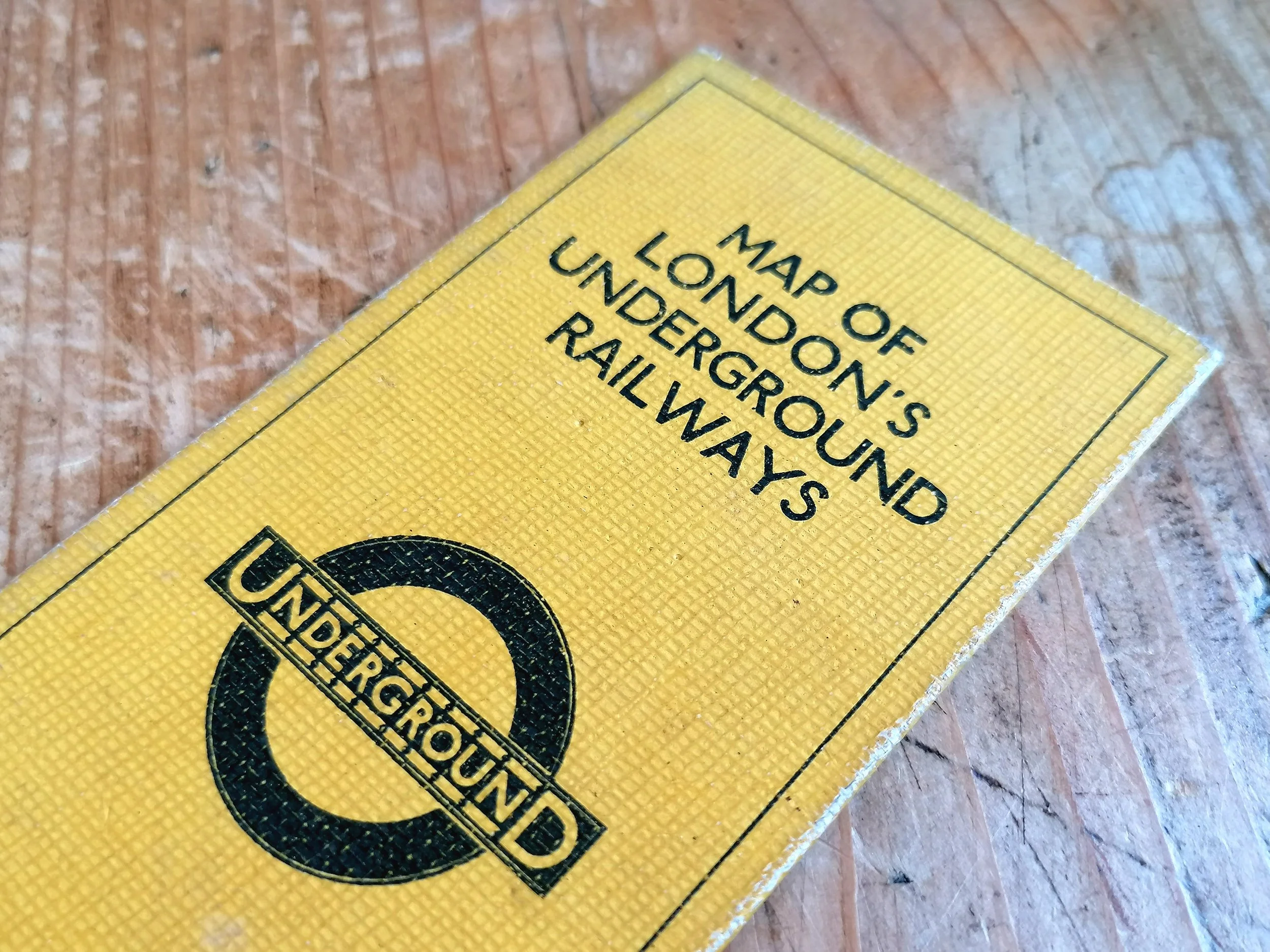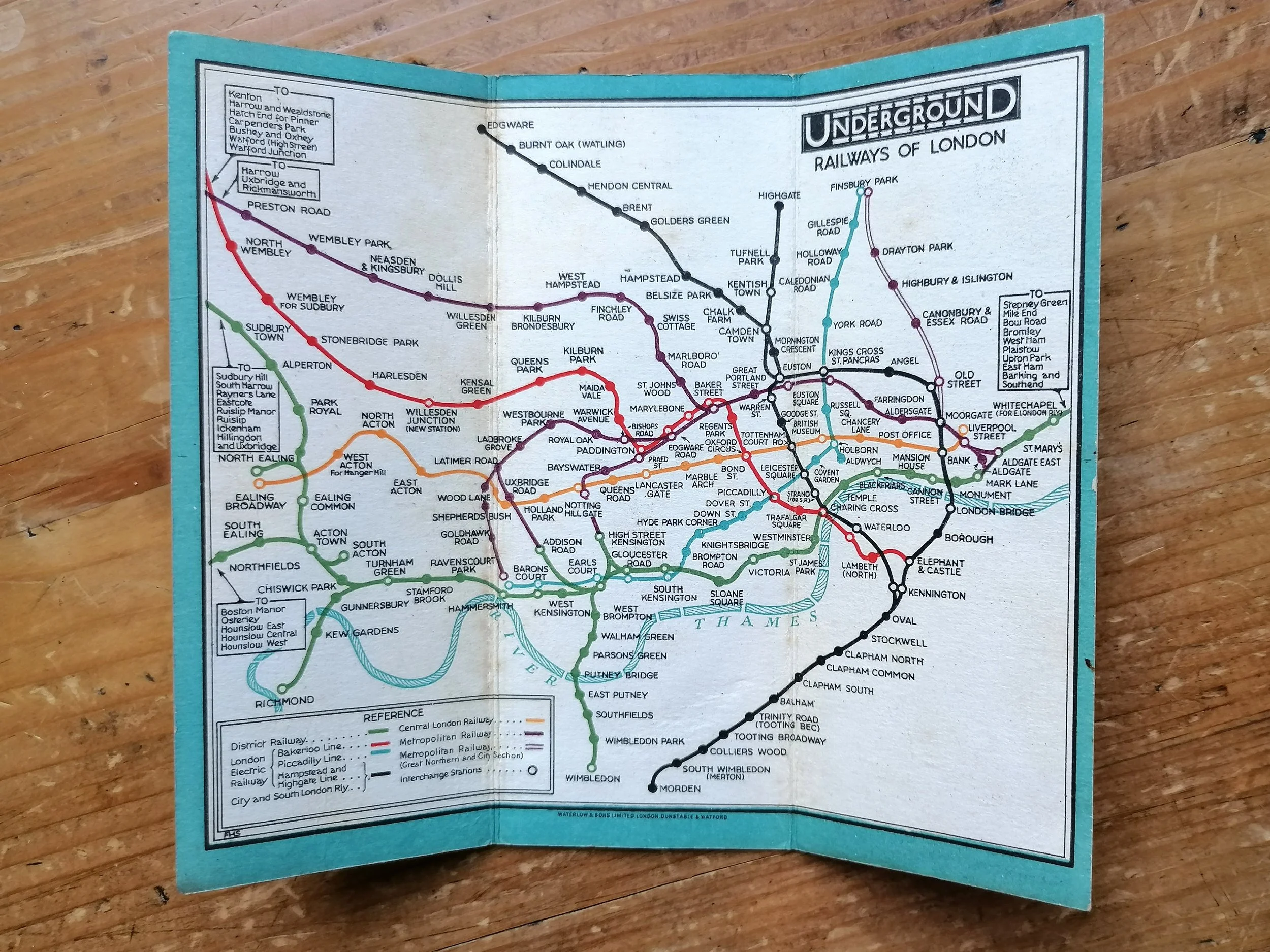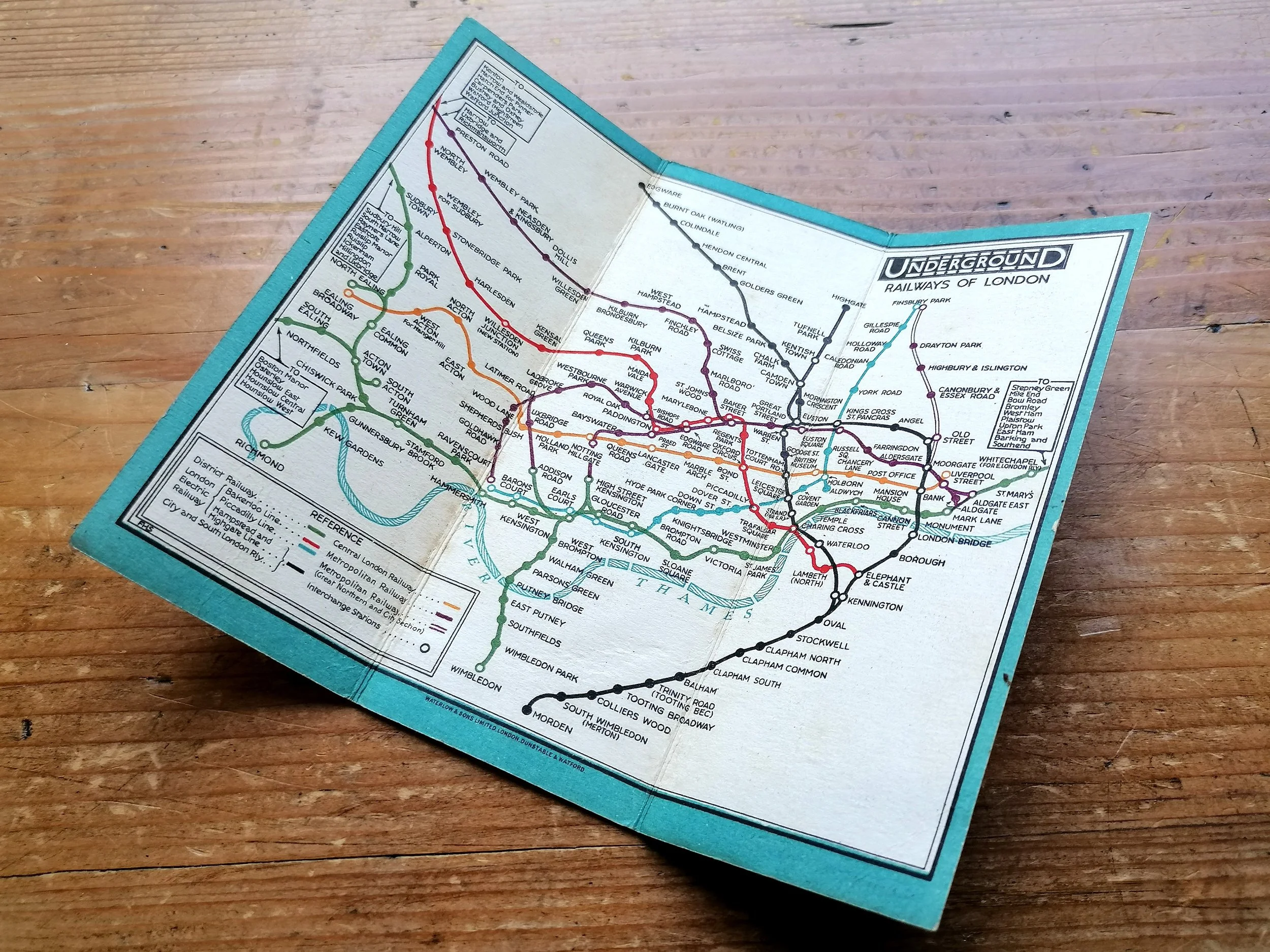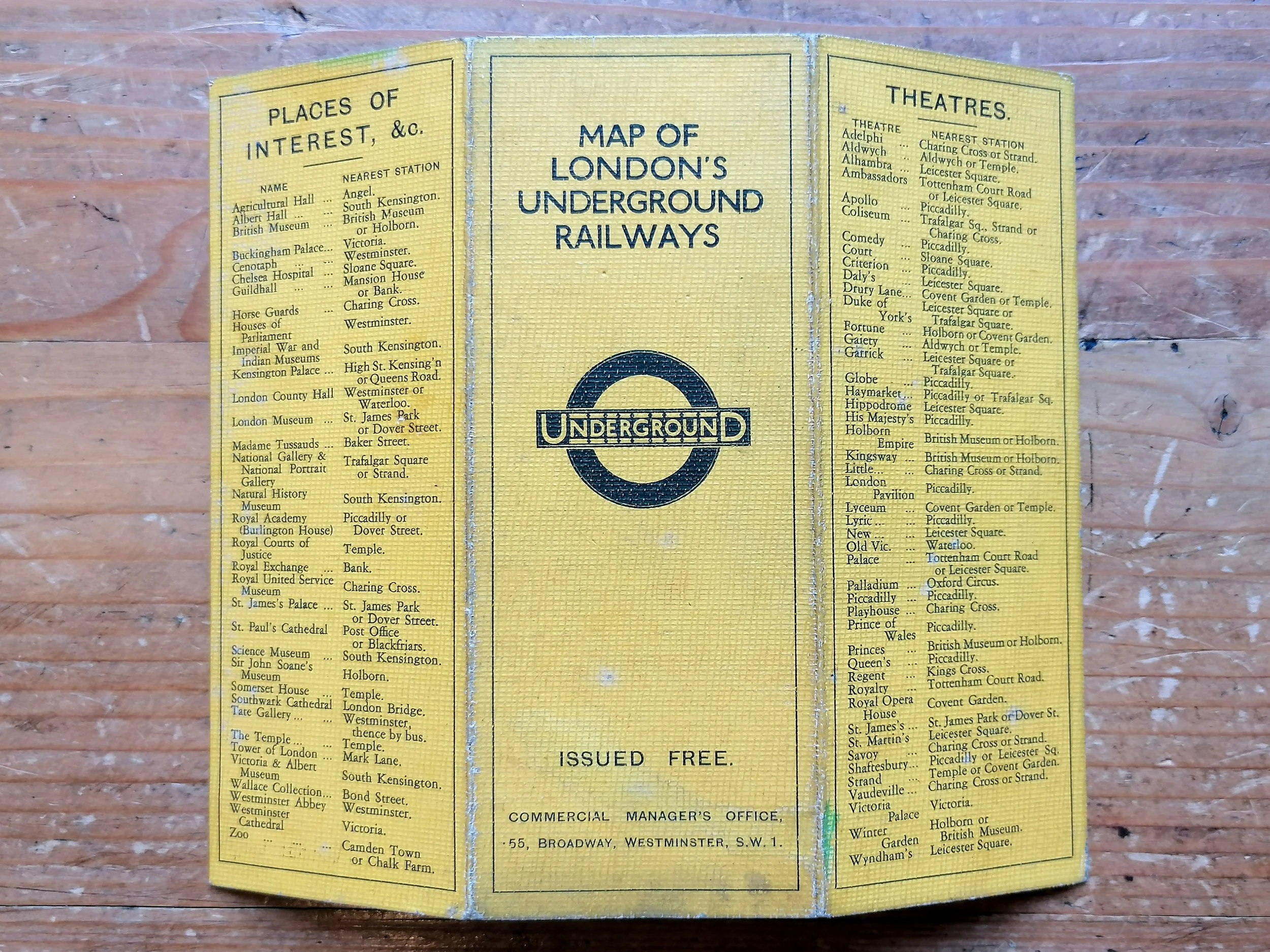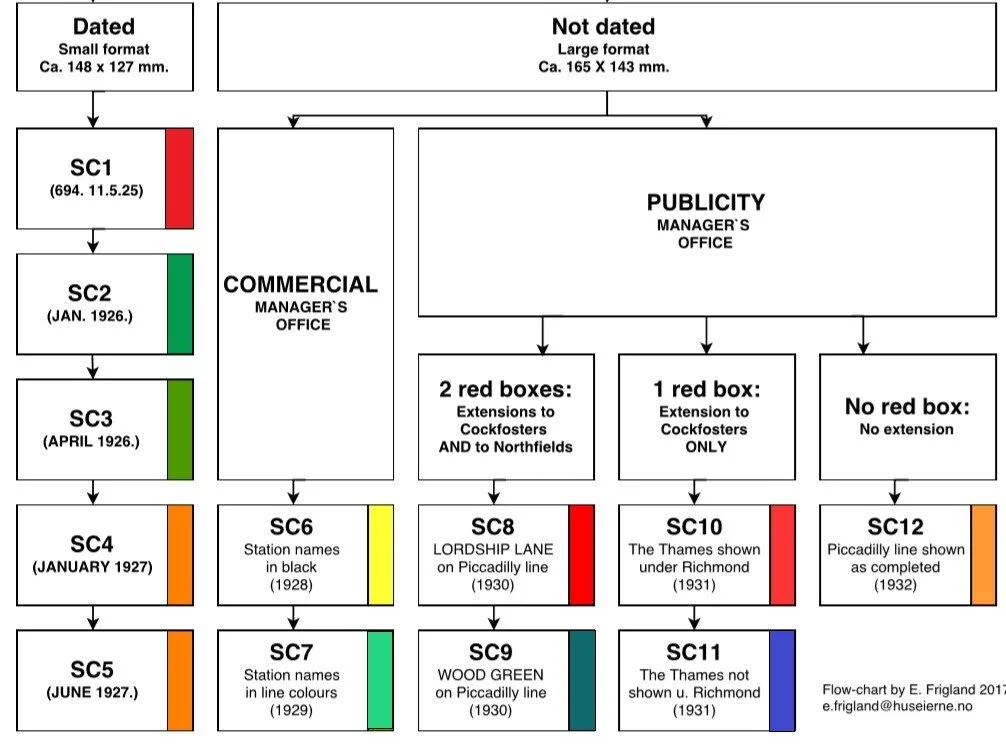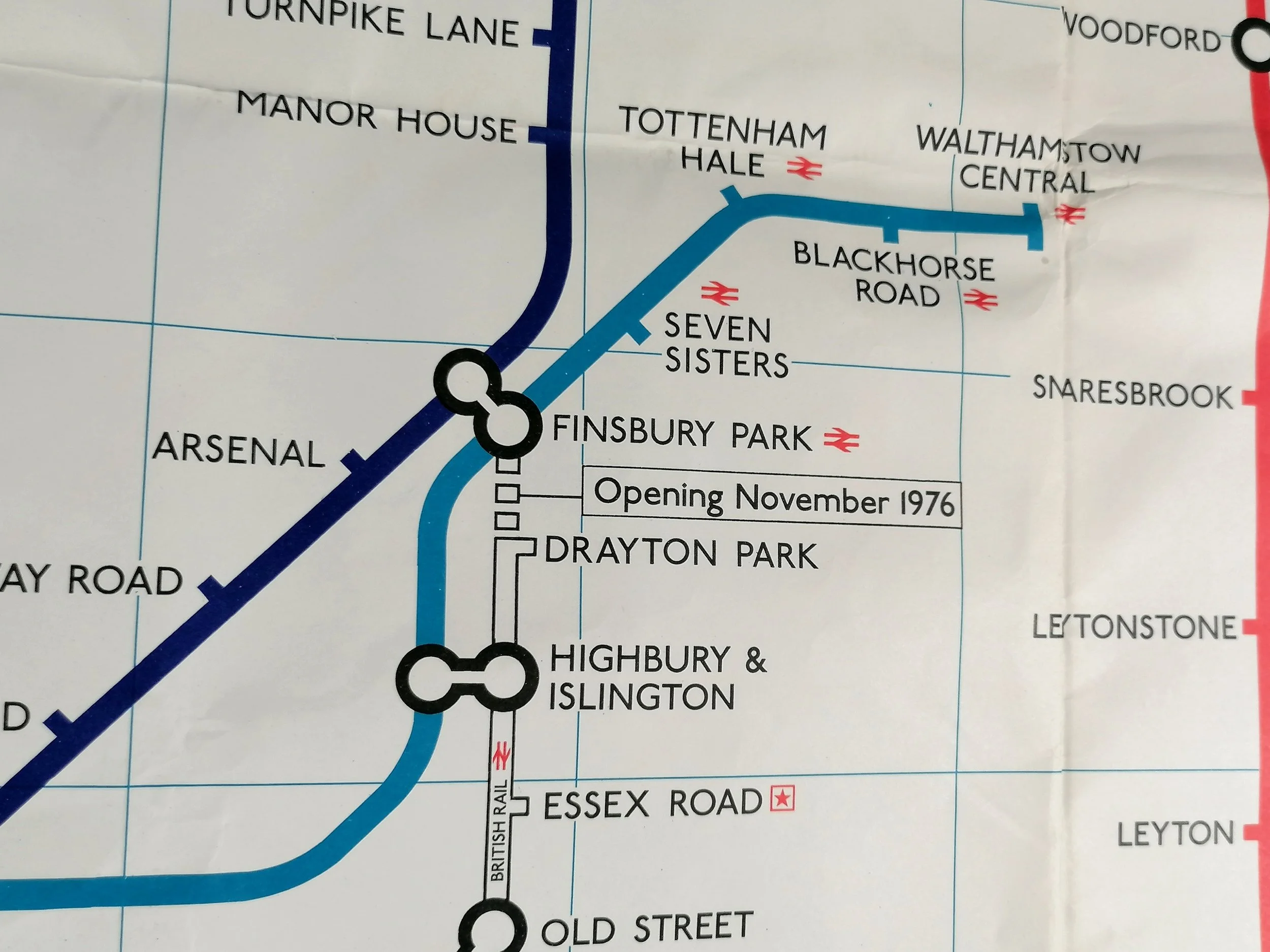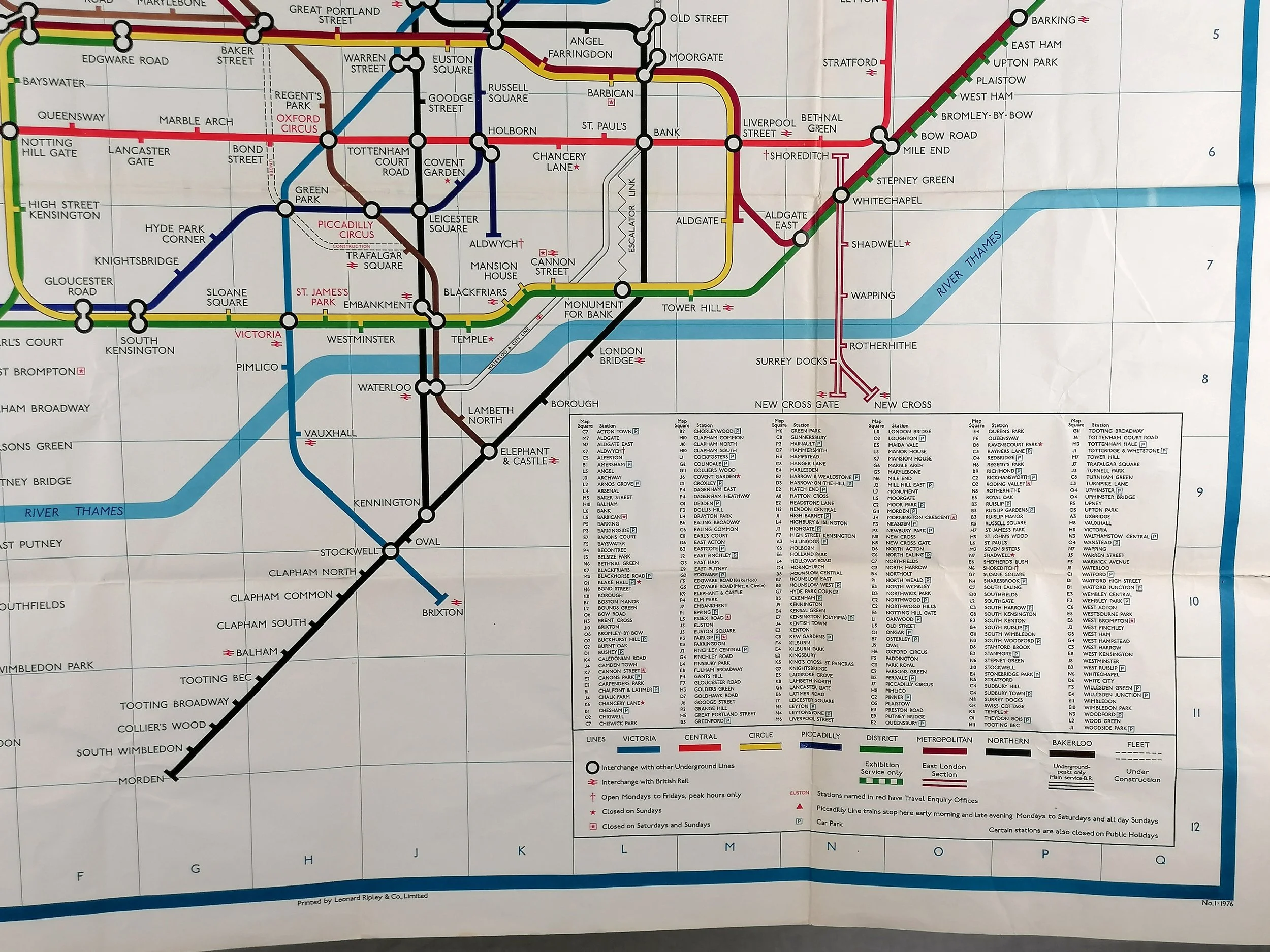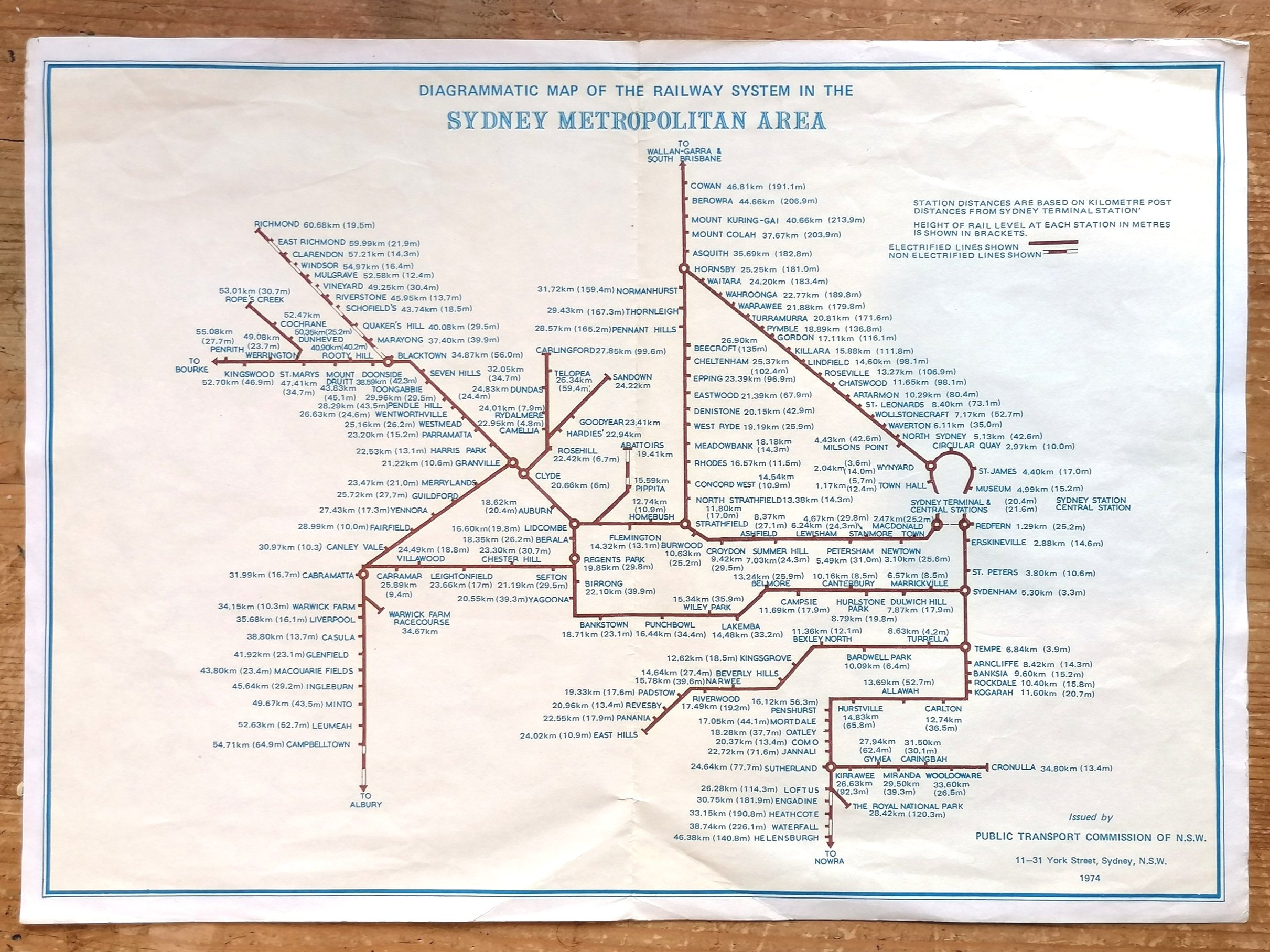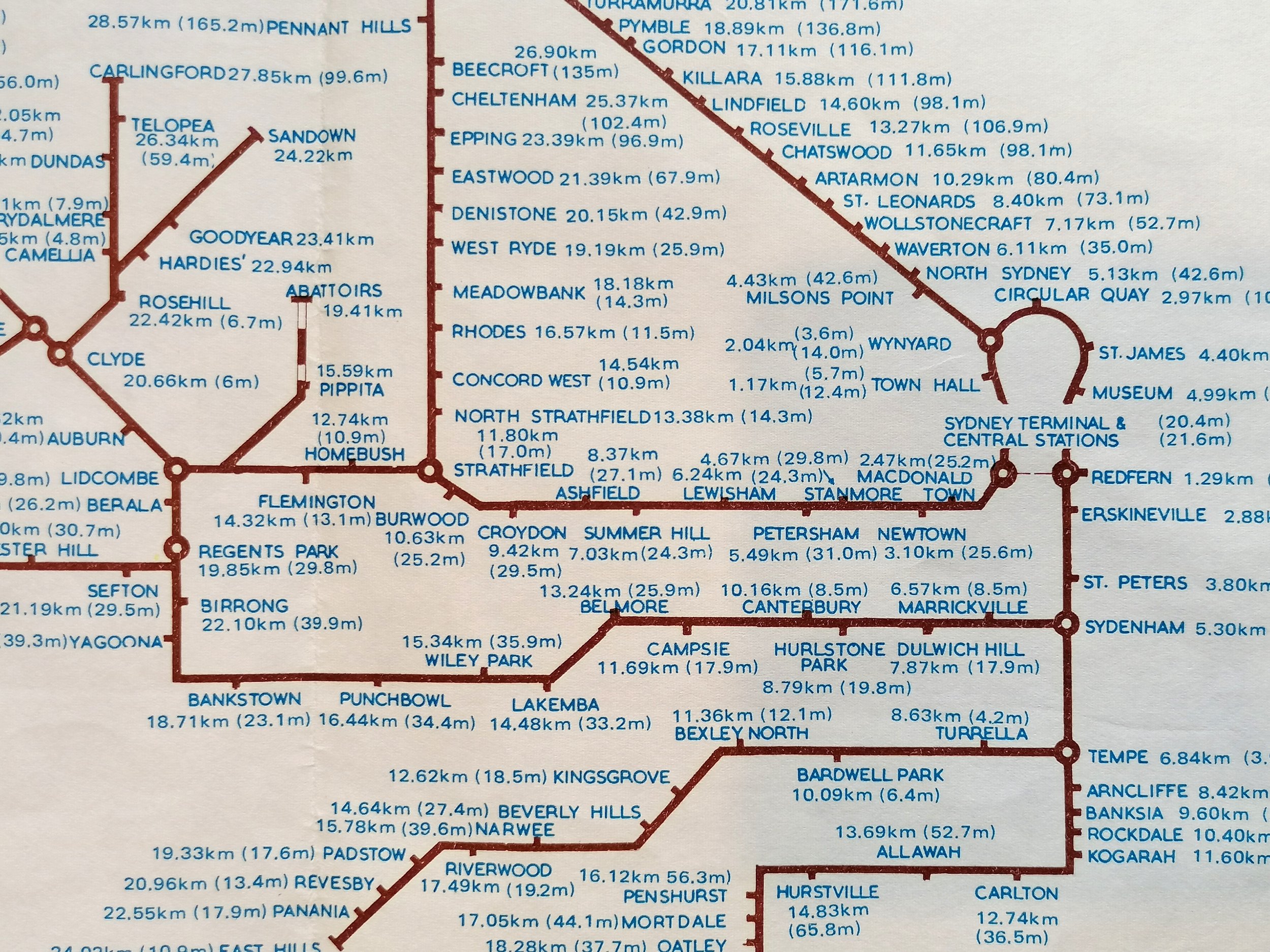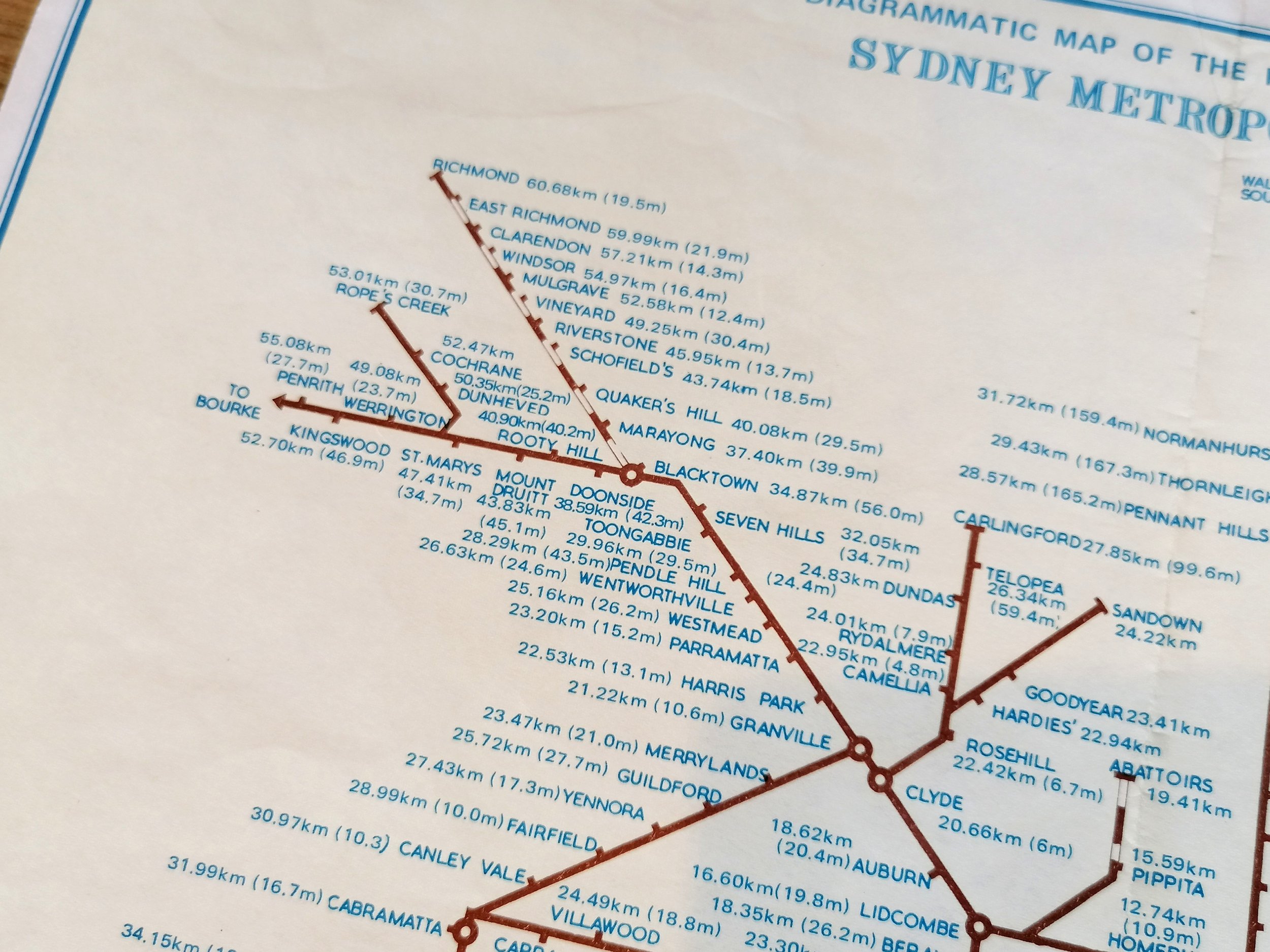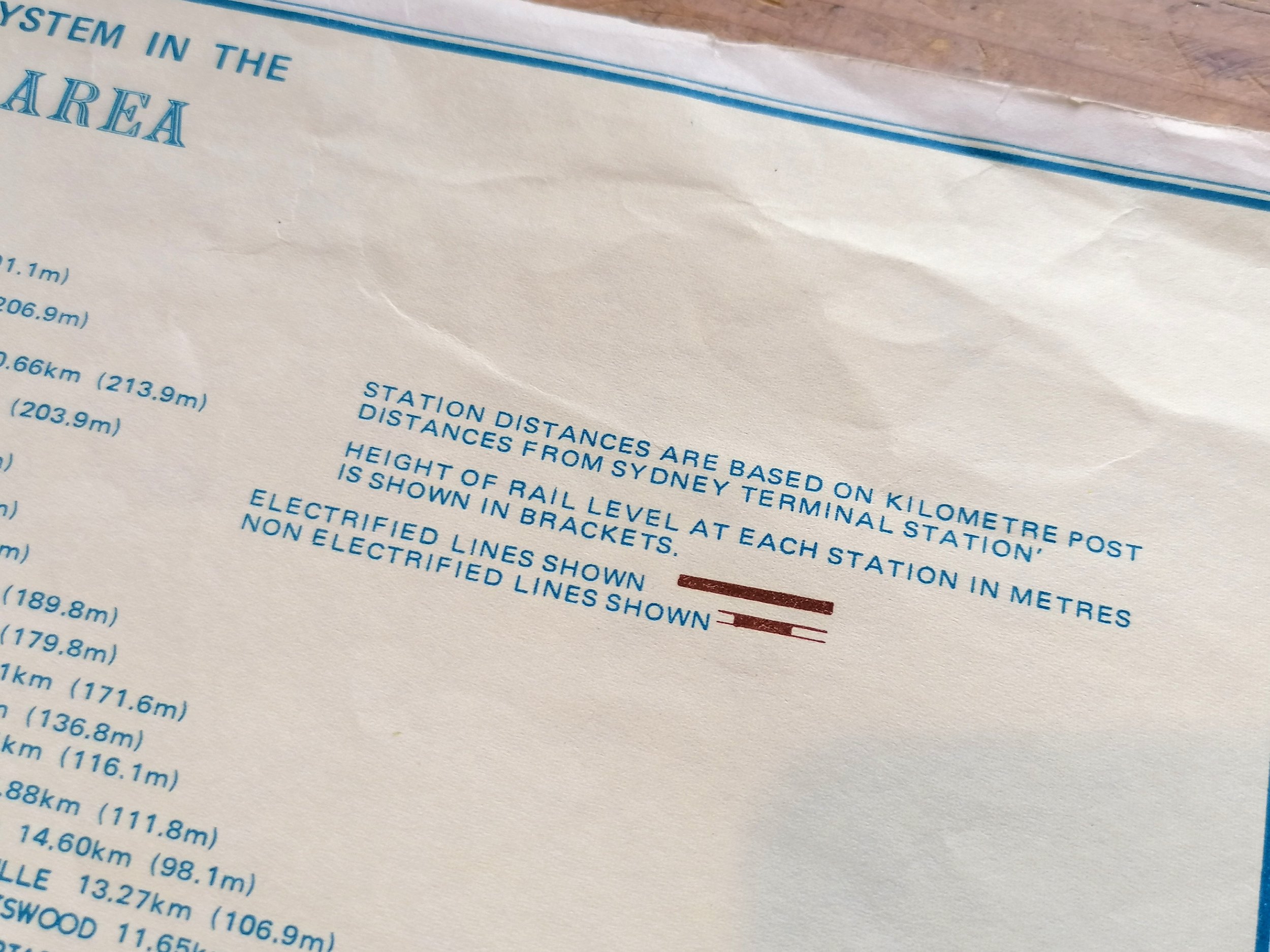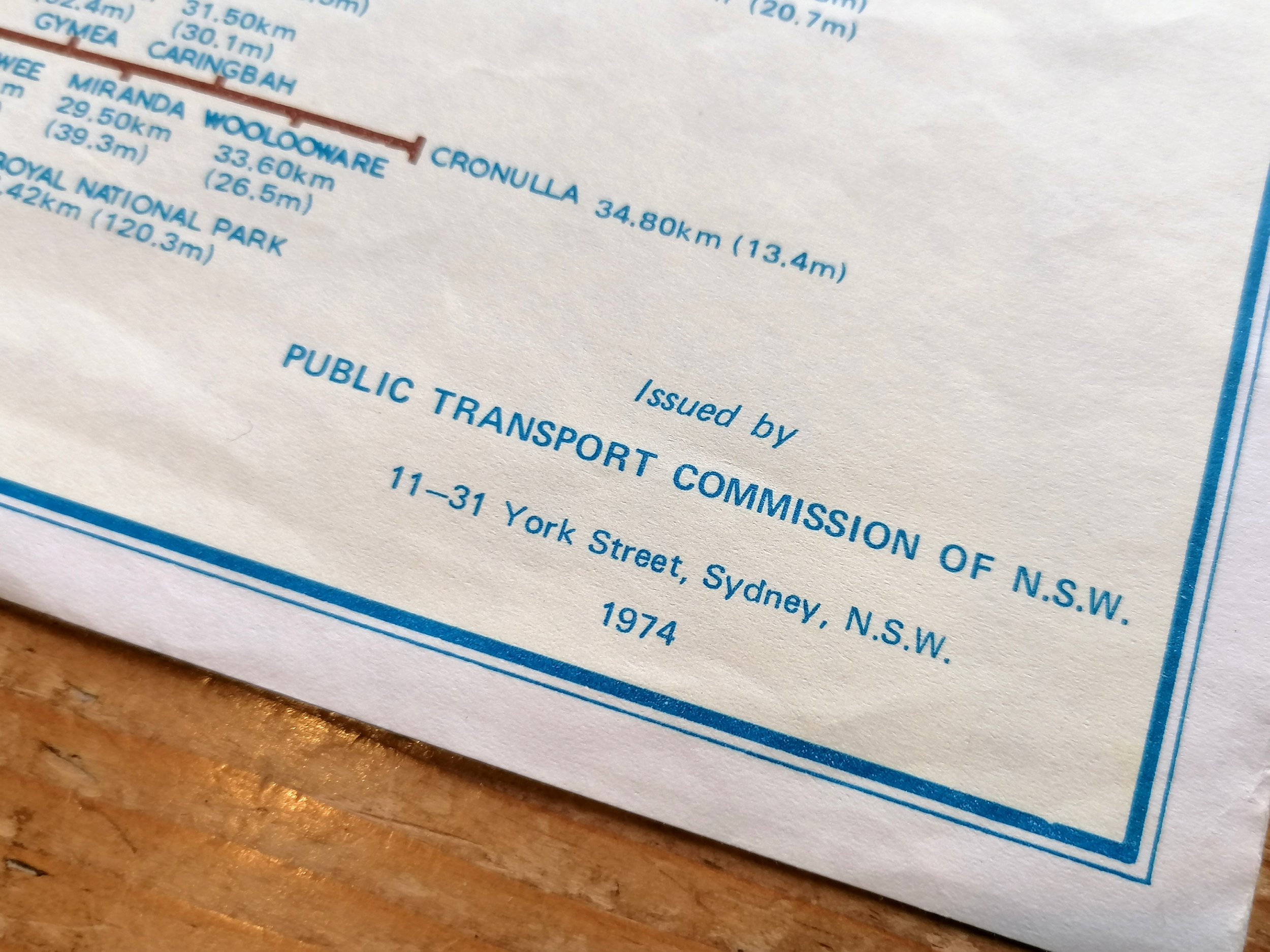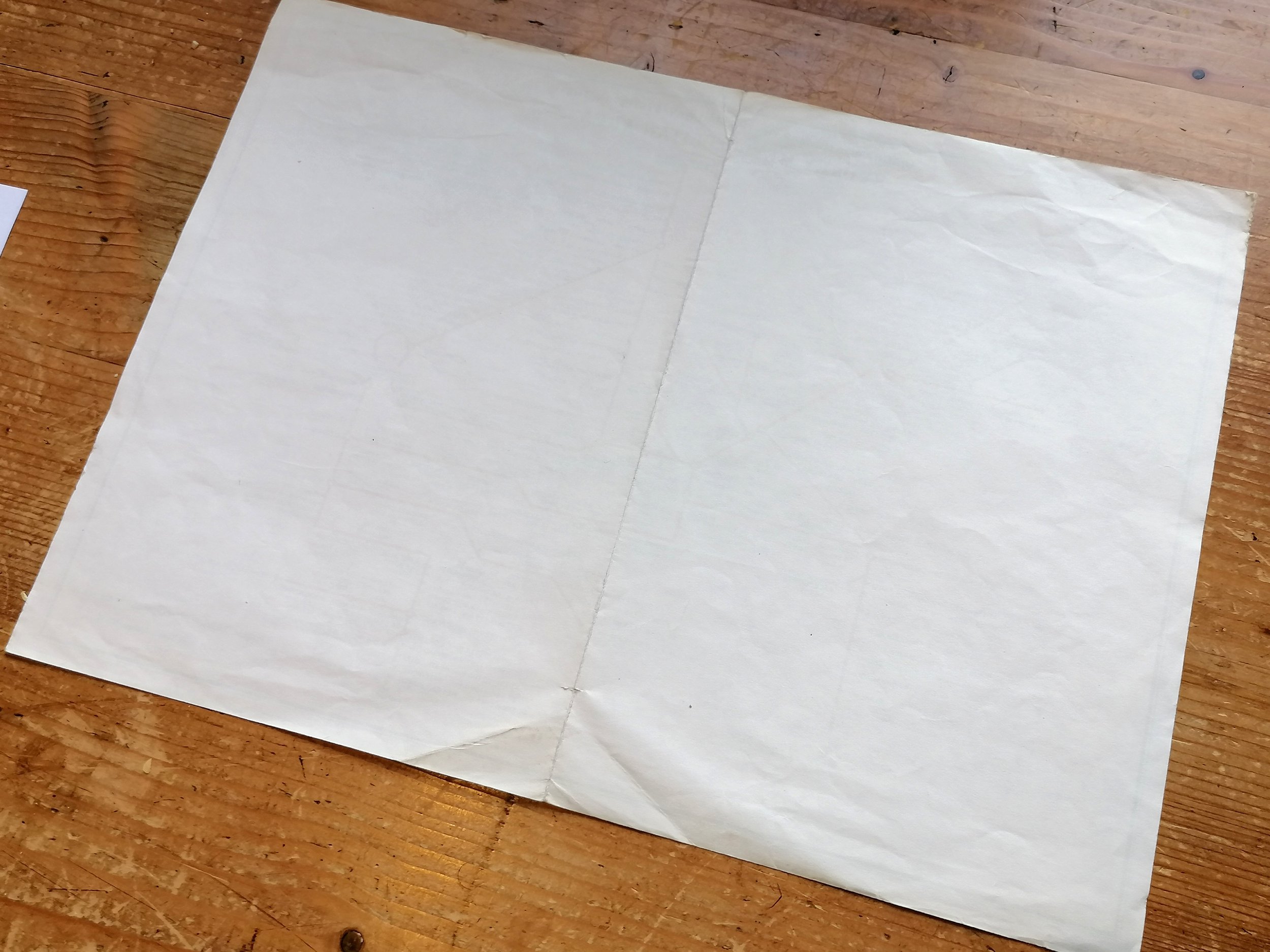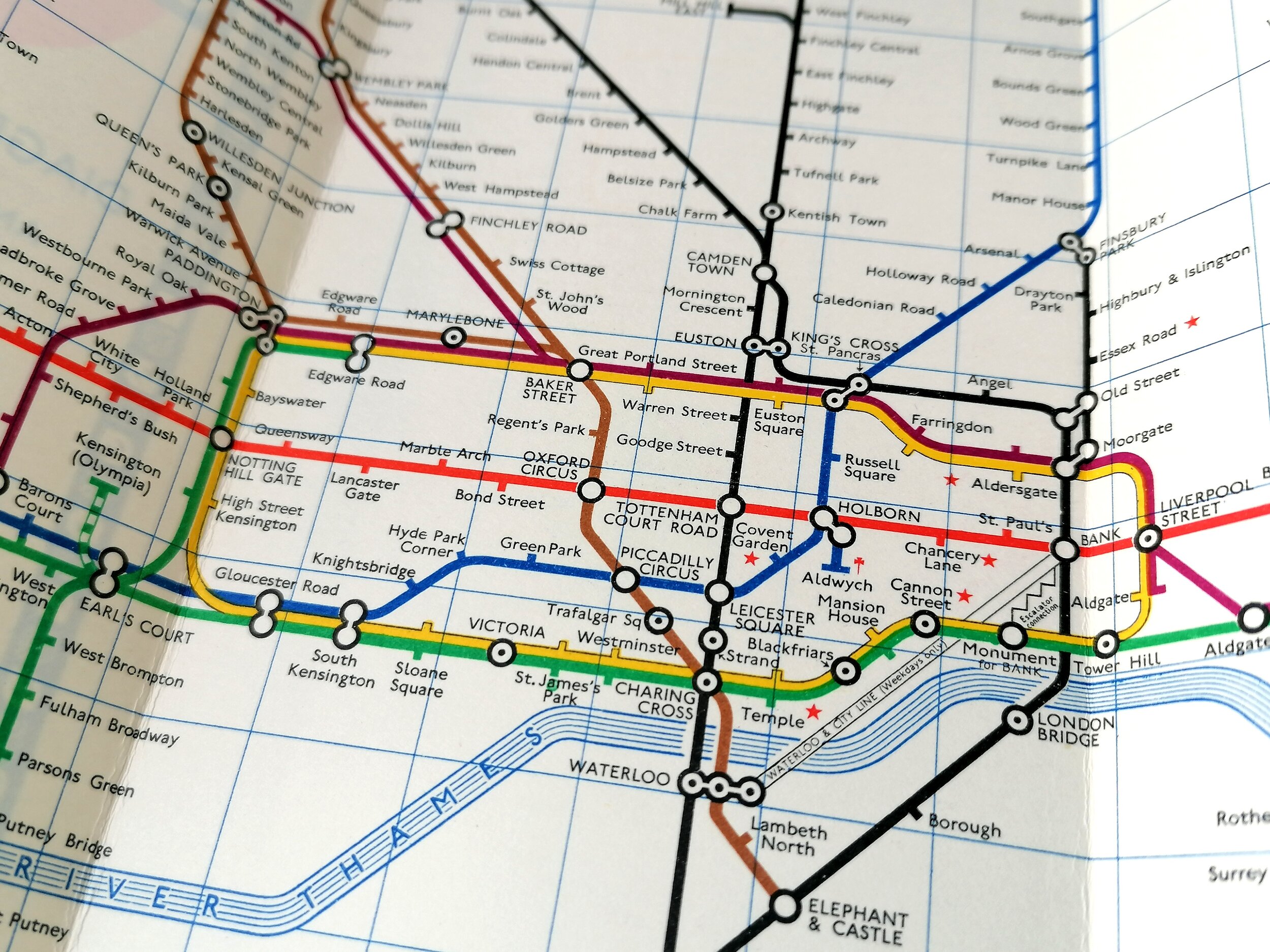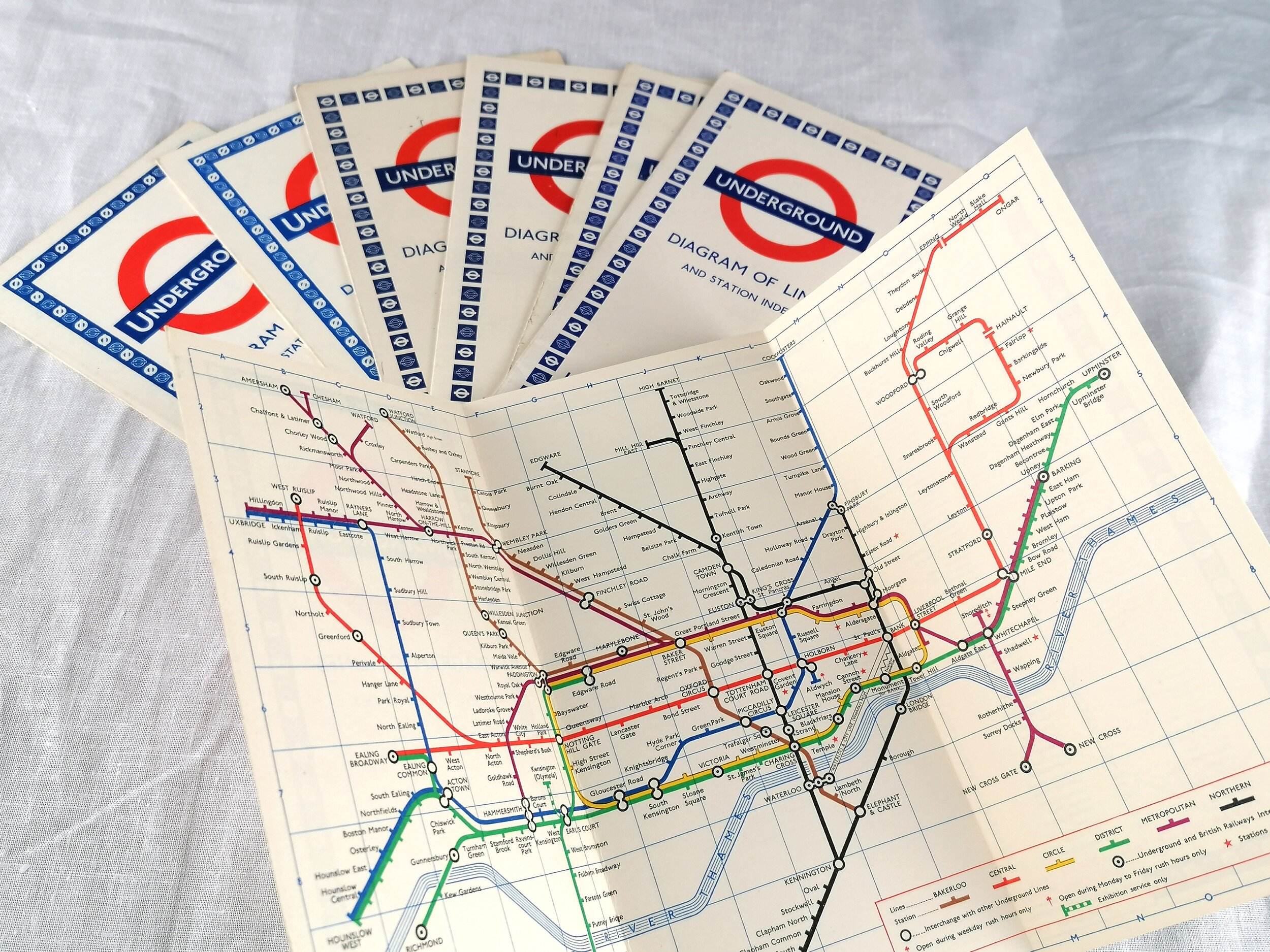1928 London Underground Pocket Map - FH Stingemore
Map of London’s Underground Railways
Designed by Frederick H Stingemore (FHS). Printed by Waterlow & Sons Ltd for the Underground Group.1928, 6th Edition. Measures 16.7cm x 14.2cm Linen-card. Condition: Excellent. Some marks on the cover and some minor age-related marks on the map face.
This stunning 1928 Map of the London's Underground railways is the 6th edition of Fred Stingemore's 12-map series (1925-1932). identifiable by its cover (yellow) and notably larger size than the 1925-27 editions. Stingemore has completely redrawn the map to capitalise on the extra space whilst also undertaking some decluttering such as the removal of mainline references next to station names.
Despite a career spanning over 40 years in the London Underground Drawing Office, it is as HC Beck’s immediate predecessor as map designer that Frederick Stingemore is most well known.
Like many before him, Stingemore grappled with the density and sprawl of the Underground railway network to draft a series of pocket maps from 1925 to 1932. The Stingemore series of pocket maps saw 12 bi-fold linen-card editions, each with a distinctive colour cover. The map design improved in clarity with each iteration whilst remaining topographical in format with some distortion applied for outlying areas. It was Stingemore that had encouraged his colleague, Harry Beck, to resubmit his radical circuit diagram design after it was initially rejected. Beck’s diagram was published in January 1933.
Map of London’s Underground Railways
Designed by Frederick H Stingemore (FHS). Printed by Waterlow & Sons Ltd for the Underground Group.1928, 6th Edition. Measures 16.7cm x 14.2cm Linen-card. Condition: Excellent. Some marks on the cover and some minor age-related marks on the map face.
This stunning 1928 Map of the London's Underground railways is the 6th edition of Fred Stingemore's 12-map series (1925-1932). identifiable by its cover (yellow) and notably larger size than the 1925-27 editions. Stingemore has completely redrawn the map to capitalise on the extra space whilst also undertaking some decluttering such as the removal of mainline references next to station names.
Despite a career spanning over 40 years in the London Underground Drawing Office, it is as HC Beck’s immediate predecessor as map designer that Frederick Stingemore is most well known.
Like many before him, Stingemore grappled with the density and sprawl of the Underground railway network to draft a series of pocket maps from 1925 to 1932. The Stingemore series of pocket maps saw 12 bi-fold linen-card editions, each with a distinctive colour cover. The map design improved in clarity with each iteration whilst remaining topographical in format with some distortion applied for outlying areas. It was Stingemore that had encouraged his colleague, Harry Beck, to resubmit his radical circuit diagram design after it was initially rejected. Beck’s diagram was published in January 1933.
Map of London’s Underground Railways
Designed by Frederick H Stingemore (FHS). Printed by Waterlow & Sons Ltd for the Underground Group.1928, 6th Edition. Measures 16.7cm x 14.2cm Linen-card. Condition: Excellent. Some marks on the cover and some minor age-related marks on the map face.
This stunning 1928 Map of the London's Underground railways is the 6th edition of Fred Stingemore's 12-map series (1925-1932). identifiable by its cover (yellow) and notably larger size than the 1925-27 editions. Stingemore has completely redrawn the map to capitalise on the extra space whilst also undertaking some decluttering such as the removal of mainline references next to station names.
Despite a career spanning over 40 years in the London Underground Drawing Office, it is as HC Beck’s immediate predecessor as map designer that Frederick Stingemore is most well known.
Like many before him, Stingemore grappled with the density and sprawl of the Underground railway network to draft a series of pocket maps from 1925 to 1932. The Stingemore series of pocket maps saw 12 bi-fold linen-card editions, each with a distinctive colour cover. The map design improved in clarity with each iteration whilst remaining topographical in format with some distortion applied for outlying areas. It was Stingemore that had encouraged his colleague, Harry Beck, to resubmit his radical circuit diagram design after it was initially rejected. Beck’s diagram was published in January 1933.
- Price does NOT include delivery.
- Delivery/collection must be purchased/organised separate to product purchase.
- Please ensure you have read and agree to the conditions within our Returns Policy (link at bottom of page)
- Please use the Enquiry Form below to request a delivery estimate, if required.
Enquire about this item

